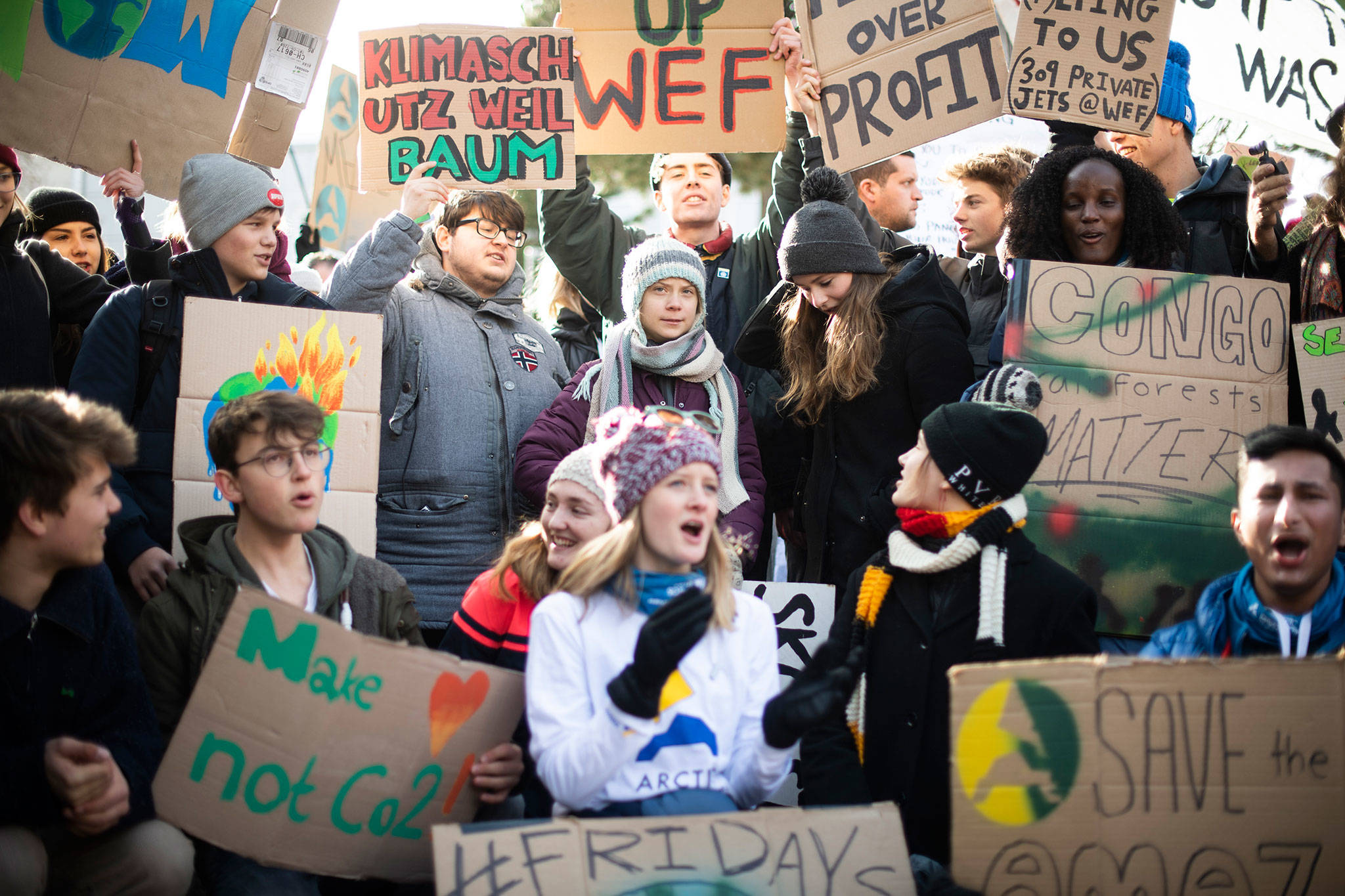By The Herald Editorial Board
There’s the old joke about the weatherman who, when asked for his nightly report, sticks his head out the window and announces, “It’s raining.”
We didn’t say it was a good joke, but it illustrates the point now about the utter undeniability of the mounting effects of climate change, caused by an unabated increase in carbon dioxide and other greenhouse gases.
If you can’t stick your head out the window for observable evidence — certainly those suffering through Australia’s record wildfires and heartbreaking loss of wildlife can — the proof that verifies the warnings from scientists shouldn’t escape us: increasing severe weather in the form of droughts, heat waves, heavier rains and flooding; decreasing snowpack averages and shrinking glaciers in our own county and across the nation and globe; longer and deadlier wildfire seasons and more lost acreage; warmer ocean temperatures, acidification and toxic algae blooms; changes in marine and land animals’ range and migration; and shrinking polar ice caps and rising seas, among others.
Unfortunately, for too many, all that is deniable or simply invisible.
The problem, notes New York Times political columnist Paul Krugman in a recent commentary, is that we may have reached a point of diminishing returns in the ability of scientific fact, observation and overwhelming consensus to convince those remaining who refuse to be convinced. Very few, writes Krugman, “will be moved by further accumulation of evidence, or even a proliferation of new disasters.”
Much of that obstinance, when not based in partisan politics, is borne out of the perceived fears of what must be done to confront climate change, especially the steps needed to decrease emissions of carbon and other greenhouse gases. A chief example thus far has been the refusal to recognize the economic subsidies we have long provided to fossil fuels and the resulting foot-dragging seen on placing a fair price on carbon that recognizes what it has cost our environment and our pocketbooks.
If the environmental consequences aren’t going to persuade on the urgent need for action, then the arguments must be adapted to show the real economic costs of inaction in responding and preparing for disasters and other climate effects but also the economic opportunities afforded by taking steps to reduce emissions and confront the change that is now too late to avoid completely but not too late to be limited.
The City of Everett could soon take action that can begin to make economic as well as environmental arguments for action on climate change. City Council member Paul Roberts, long an advocate for climate action, has drafted a resolution that asks his fellow council members to declare a climate emergency and adopt a Climate Action Plan that encourages further development and actions regarding energy, land use, transportation infrastructure and buildings and other areas that will reduce greenhouse gas emissions.
Among those policies outlined in the resolution, it seeks support: for carbon pricing at the state and regional level, such as a clean-fuels standard, and support and incentives for development of renewable energy sources; for state standards for zero-emission vehicles; for bicycle, pedestrian and other nonmotorized transportation policies; for green building materials, in particular cross-laminated timber and other low-carbon options; and for energy-efficient buildings and building codes.
It also seeks support for initiatives in partnership with regional higher education, such as WSU-Everett and Everett Community College, the state Department of Commerce and others on clean, renewable energy and economic development projects.
Some of that work already has begun among the state’s cities. The Association of Washington Cities last year released its report, “Growing the Green Economy,” that seeks to draw on the expertise and resources of the state’s cities, industries, utilities, state agencies, universities and others to respond to the challenges presented by climate change. The effort is intended to foster development of technologies and solutions along two tracks: those that seek to reduce carbon emissions and those that focus on how to adapt to a changing climate and mitigate its impacts. The report, work fostered by Roberts, outlines four main areas where the state is best positioned to develop strategies: energy; water; agriculture and forestry; and building materials and efficiencies.
A similar approach is showing the economic opportunities of climate action in Sweden, as outlined by Sweden’s ambassador to the United States in a recent commentary in The Seattle Times. Sweden, writes Karin Olofsdotter, has committed to being the world’s first fossil-free country, achieving net-zero carbon emissions by 2045, “not only because it is our responsibility to future generations and our great natural wealth but because it makes economic sense.”
Sweden, she writes has “broken the link between carbon emissions and increased GDP.” Since 1990, the Scandinavian country has decreased its carbon emissions by 26 percent, but at the same time its economic growth has increased by 78 percent.
In the face of a global crisis, however, it’s natural to ask what good is such a commitment from one country of 10 million people, let alone a city of 111,000 in Washington state.
Sweden already has shown the economic opportunities available in developing technology and policy that can be adopted elsewhere; the same opportunities are available to Everett, Snohomish County, the state, the nation and the world.
This is not to claim that there will not be sacrifices to make in order to reach a net-zero carbon emissions future, but there can be ample opportunity to offset the effects of the changes we need to make. The goals of addressing climate change and sustaining an economy that meets the needs of all are not mutually exclusive.
Like the effects of global warming, the economic case for addressing climate change should become increasingly obvious.
Or as Bob Dylan advised: “You don’t a weatherman to know which way the wind blows.”
Talk to us
> Give us your news tips.
> Send us a letter to the editor.
> More Herald contact information.

























